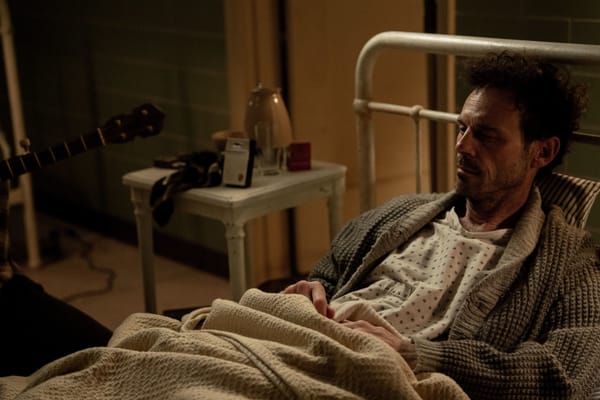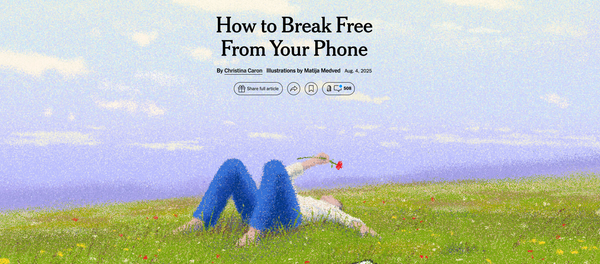PLAY-Book: Play histories and 'the big question'

One of the things I appreciate about Brown's methodology is the qualitative, almost ethnographic nature of the play histories from which he often shares emblematic examples.
He'll frequently tell the story of a famous scientist, or an anonymous patient or colleague, and the ways that their play as a child has shaped their play as an adult—and often their life journey more broadly. The exercise reminds me a little bit of the spiritual autobiographies that are so common in church formation and vocational discernment settings.
Sometimes Brown will tell the sad story of play discontinuities. The chapter "the opposite of play is not work" begins with the stories of Barbara, Jason, and Mark. They all have healthy, vibrant lives of social engagement, playful hobbies, etc. And then something tragic happens.
(Incidentally, let's not pretend this is a universal pattern. Brown doesn't. Socio-culture factors, individual variability, etc. Stipulated.)
Here's the culmination of Mark's story, followed by the question all three find themselves asking in these moments of disorientation (I've added paragraph breaks and boldface to this passage from pp. 125–126):
Soon he was promoted, and then promoted again. As the owner put him in managerial positions with more responsibility, he began to feel that he shouldn’t be joking around. He began to feel that it was his job to keep others from goofing off so that they could get more work done. He felt that no one had any right to complain, because he was working harder than anyone else.
After closing the restaurant at eleven p.m., he would sit in the office for a few hours going over the bills, then drag himself home with no energy to even shower off the kitchen grease before bed, and then get back to the restaurant before eight a.m. to supervise deliveries.
One morning he sat at his breakfast table drinking coffee and watching the second hand tick by on the clock: eight a.m., then nine, then ten. He didn’t feel sick, but was so drained that he couldn’t imagine mustering the energy to get up from the table.
The question that kept running over and over in his mind was so new to him that he thought he was the only one who had ever been stymied by it. But it was one that so many people ask eventually:
Is this all there is?
The common thread leading to this question is, basically, the multiplication of responsibility at the expense of play. Not necessarily just or even primarily time for hobbies, but the ability to foster a playful posture in life and work.
Of course, there are lots of potential "antidotes" to the grimness that takes over as a result. And indeed, a person could reasonably agree about even the diagnosis. But Brown's account really resonates with me.
They weren't tired, he says. Their lives and work were not bereft of meaning per se. "Over the long haul, when ... spice-of-life elements [playful variety, challenge, etc.] are missing, what is left is a dulled soul" (p. 126).
Work and play support each other, he says, but only if we can prevent the labor from crowding out the creativity, the excitement, the occasional (apparently purpose-less) flight of fancy.
It's no exaggeration to say that an "Is this all there is?" moment brought me back to this ministry of daily informal teaching, social resource curation, and playful exploration of the territory at the intersection of the connected but distinct fields of learning, faith, and media. I'm curious if y'all have similar stories?
In any event, thanks for helping me claim (or reclaim) meaningful play at the heart of my vocation. Wherever you find yourself in life, I hope you're finding chances to do likewise.



